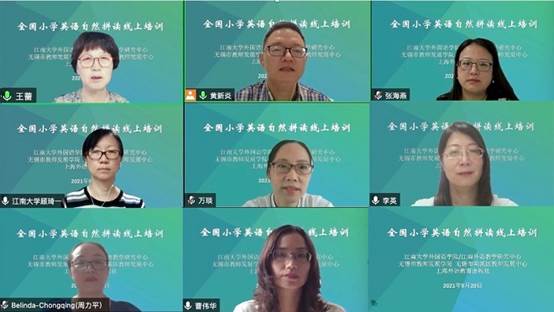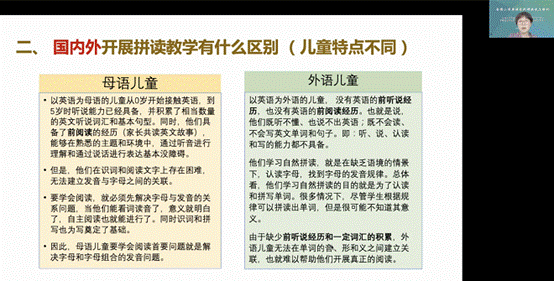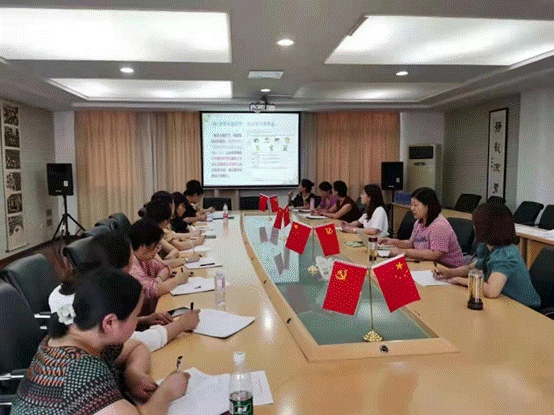The main channel of realizing the core competencies in English course is to improve reading literacy. In-depth and continuous English reading plays important role in improving the key ability and essential character of primary and secondary school students, contributing to the improvement of the language ability, thinking quality and learning ability of students, deepening their identification with traditional culture and expanding their international vision. However, according to the current situation of English reading teaching, more students in China have poor reading habits and poor reading abilities. This has some relationships with early reading teaching methods of teachers and word reading ability of students. In order to improve the scientific understanding of phonics among primary and secondary school English teachers, accurately grasp the specific implementation of phonics teaching methods in English teaching, and promote the gradual development of students’ reading literacy, School of Foreign Studies, Jiangnan University, Jiangnan Foreign Language Teaching Research Center, Wuxi Teacher Development College, Wuxi Liangxi District Teacher Development Center and Shanghai Foreign Language Education Press carefully planned to organize “The National Online Training on English Phonics for Primary Schools” during the Mid-Autumn holidays in 2021. Under the background of the requirement of “double reduction” proposed by the Ministry of Education in the Notice on Strengthening The Management of Homework of Compulsory Education School, this public interest training aimed to further promote the English reading project under the background of national reading and provide innovative ideas and feasible scenarios for school to implement delayed service. It had received the special support from Xinhua Media Think Tank and “Learning Power” Jiangsu learning platform.
First of all, Professor Wang Qiang, director of the Institute of Foreign Language Education and Teacher Education of Beijing Normal University, supervisor of doctoral students, chairman of the Foreign Language Teaching Guidance Committee of Basic Education of the Ministry of Education, delivered a keynote report entitled “Teaching Thoughts on Connecting Phonics and Reading”. In the report, she radically clear up the basic concepts of spelling from five aspects, which were respectively the concepts and significance of implementation of natural spelling, the difference between the teaching of spelling at home and abroad, the reason to connect phonics and reading teaching, how to connect phonics and reading teaching and the revelation to developing phonics teaching in primary schools; and put forward the principles of teaching practice based on the characteristics of Chinese basic education.Professor Wang Qiang pointed out that phonics was not just for spelling, but for better reading, comprehensively promoting students’ language ability, stimulating students’ interest in learning and fundamentally enhancing students’ cultural awareness, exercising their thinking quality and improving their discipline literacy. At the same time, she stressed that China’s foreign language learning environment, the cognitive development process of Chinese foreign language learners was different from what learned from the native language environment. We must do effective exercise according to the feature of China’s foreign language teaching and learning, build meaning -driven context through teaching design, create conditions for students to establish the connection of sound, form and meaning. Professor Wang Qiang pointed out the macro direction and implementation path for phonics teaching in Chinese environment.
Professor Zhou Liping, director of The English Education Research Institute of Chongqing Second Normal University, Associate professor of School of Foreign Languages and Literature and Director of China Language Education Association, shared Teaching Practice of the Integration of Phonics and textbooks. Through mind mapping, teacher interaction and specific spelling teaching demonstration, she clarified the importance of establishing the knowledge system of phonics teaching, and analyzed the differences of the knowledge system of phonics in different versions of English textbooks from four aspects: the knowledge system of phonics teaching, the knowledge system of current textbook phonics, the practice of the integration of phonics and textbook, and the revelation of the integration of phonics and textbook. At the same time, Zhou Liping emphasized that in the practice of phonics teaching, teachers should give full play to their initiative, rely on multi-modal teaching, flexibly use the context and combine the sound, shape and meaning of words in order to maximize the advantages of phonics teaching.
The topic of Professor Zhang Haiyan, PhD of Education of Jackson State University, professor of School of Foreign Languages of Jimei University, director of Foreign Language Teacher Education and Development Institute, was “The Cultivation of Phonological Awareness in Primary English Teaching”. She first introduced the definition of phonological awareness and its constituent elements, and emphasized its importance in phonics and language learning. She discriminated a series of phonetics terms through specific examples of phonics teaching demonstration. At the same time, she shared the methods of improving students’ phonics awareness in American classrooms, which provided inspiration for Chinese teachers to carry out phonics teaching.
Wan Yan, the Primary School English teaching researcher in Wuxi Education Research Institute, summed up three advantages of phonics teaching in Reading Qisi Micro class of Hebreen English (4A) and the teaching example of Happy Phonics. First, phonics teaching follows the characteristics of textbook compilation and perceiving pronunciation in interesting experience. Secondly, it follows the cognitive characteristics of children and lets them acquire the ability in natural context. Finally, it follows the language learning path and lets children form literacy in structured tasks. Later, Qin Yamei, Vice-principal of Wuxi Pinghu Experimental Primary School, shared her experience of micro-lesson making and spelling teaching.
Li Ying, the Primary School English trainer researcher of Wuxi Liangxi District Teacher Development Center, director of Wuxi Primary English Education Association and the researcher fellow of Jiangnan Foreign Language Teaching Research Center, shared the issue entitled “The Path and Implementation of Regional Progressive Research on Phonics for Primary School English”. She introduced the regional progressive process, research result and future thinking of phonics in the primary English teaching in Wuxi Liangxi District at large from following aspects-project background, subject idea, implementation measures, research path, pattern construction, practical reflection and subsequent improvement, which provided professional reference for phonics on the specific practices in China.
Cao Weihua, the primary School English trainer researcher of Wuxi Liangxi District Teacher Development Center, who led the core members of the research group, made a theme report entitled “Regional Promotion of Phonics Teaching Practice” in the form of team salon. It vividly showed the extensive, procedural and practical resources which were used by Liangxi District in the regional context. It took the group as the research base, radiating and leading the branch teachers to carry out and practice subject research down to earth. It also provided a typical case for the majority of subject teaching and research staff to lead teachers in the region to carry out subject research. They summed up three teaching practices of phonics which were effective when various groups and schools implemented the regional issues of school-based: combine teaching with infiltrationandscientifically design curriculum system; extend in-class to outside-class and broaden the learning time effectively; integrate phonica and reading and learn acquisition of decoding ability naturally.
Professor Gu Qiyi from School of Foreign Studies of Jiangnan University and Jiangnan Foreign Language Teaching Research Center took Li Ying and her team’s regional promoting practice of phonics as the example to comment on the subject from two parts. The first was why to research on teaching and the second was how to do subject research. She put forward that the essence of subject research was to explore the most effective teaching methods. Starting from real problems, every teacher should also master scientific research methods, and put forward better teaching methods by summarizing, reflecting and exploring in teaching. In addition to constantly improve their teaching and research abilities, teachers should help students learn English in the most natural and efficient way and improve their English literacy.
The participating teachers listened to the lecture carefully and generally believed that they improved their understanding of phonics teaching through this online training and benefitted a lot from it. “The form of the salon team vividly shows the extensive, procedural and practical resources which are used by Liangxi District in the regional context. It took the group as the research base, radiating and leading the branch teachers to carry out and practice subject research down to earth. It also provided a typical case for the majority of subject teaching and research staff to lead teachers in the region to carry out subject research.”; “Teaching cases open the way for us to implement phonics teaching”; “Before, I did not have a clear concept on doing subject research. However, this lecture not only deepen my understanding of the significance of subject research, but also let me have a more direct understanding of how to implement it.” According to the data from Dingding platform of Sifei College, more than 5,000 college, secondary and primary school teachers participated in this online training, and the lecture received more than 111,000 likes.

Participating experts (screen shot of online lecture)

Lecture by Professor Wang Qiang “Teaching Thoughts on Connecting Phonics and Reading”

Teachers were learning together
Translation: Xinyue Li



